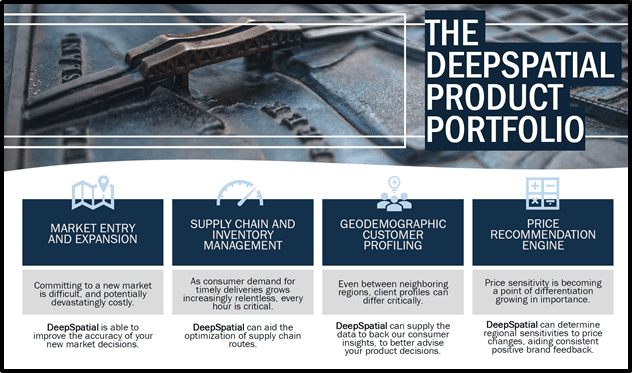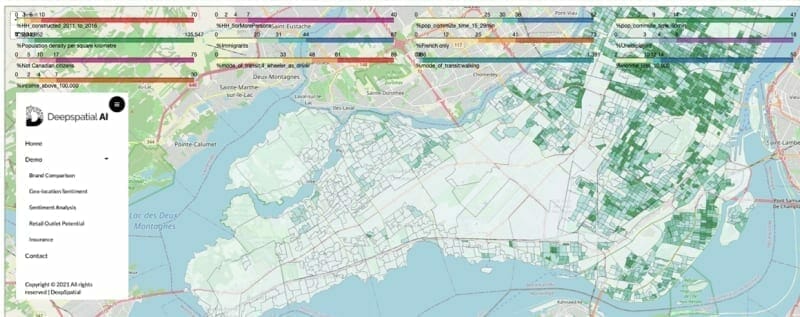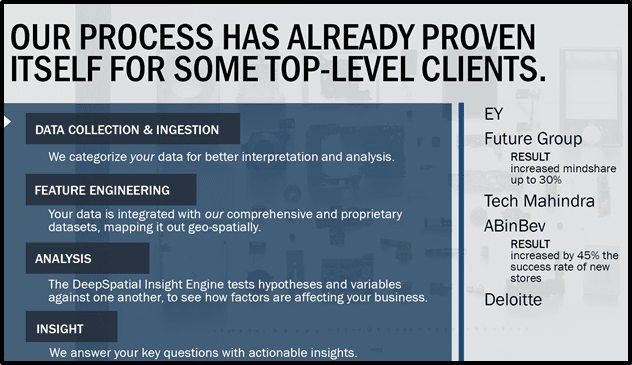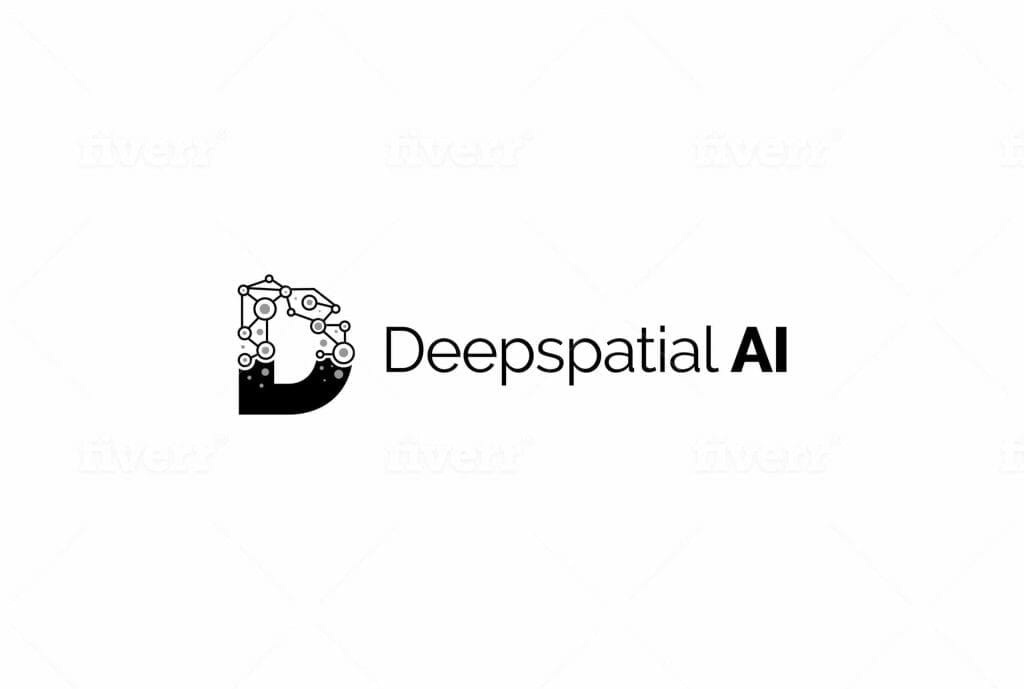Let’s say you are a franchisor parent-company that sells Thai food.
You’ve got 80 franchisees scattered around North America, mostly in shopping malls.
In 2021, you want to add 50 more locations.
Some of your existing Thai food locations have good sales numbers.
Other locations under perform.
You have instincts about what makes a Thai food outlet successful, but little hard data to support your gutting feelings.
Some relevant factors are difficult to measure.
- Aesthetics of the mall décor
- Friendliness of the staff.
- Quality of food served by proximal (competing) food vendors.
Many other factors can be measured:
- Income levels
- Immigrant populations
- Road map data
- Languages spoken
- Population density
- Local Real Estate Prices
- Social Sentiment Data
- Percentage of vegetarians
- Predilection for spicy food
- Demographics
- Average number of people-per-household
- Disposable Income
- Foot traffic data
Some of this data can be scraped from public sources.
Some of it is propriety.
Some of it only you – the Thai food franchisor – would know.
Even if you had all this data laid out on coloured spread-sheets, printed on high-quality paper, with a user-friendly font – how could you synthesize this information-matrix into an intelligent action plan?
What are the 50 best locations for your future Thai food outlets?
Enter DeepSpatial (DSAI.C) – a 2-week-old Artificial Intelligence (A.I.) company providing solutions to businesses by leveraging the power of geospatial data and machine learning.
This brand new $20 million company has created products that target four specific customer needs across multiple industry verticals.
- Geodemographic customer profiling
- Price recommendation engine
- Inventory management and supply chain analytics
- Sentiment monitoring
“Our goal with DeepSpatial takes a counterintuitive approach to solving problems,” explained Dr. Rahul Kushwah, CEO of DeepSpatial to Equity Guru,” Instead of asking why things aren’t working, we try to identify and isolate why they might be?”
“Contrary to the uni-dimensional nature of failure, business success is often a superposition of multiple relevant factors,” added Kushwah, “By leveraging the power of artificial intelligence in a geospatial context, we aim to not only identify these factors, but also the degree to which they might be relevant.”
“We are able to identify ripe markets for expansion that demonstrate similar characteristics on a global scale. What’s best about it all is that our approach is completely data driven and industry agnostic, so no matter if you’re a retailer trying to open a new store looking to get foot traffic, a distributor trying to optimize their supply chain to cut costs, or an e-commerce store relying on digital advertising to drive traffic – our technology is ready to provide robust solutions that adds value in specific, actionable ways”.

On March 15, 2021, DeepSpatial announced that it has signed a revenue generating contract with DFM Foods, India, for a strategic geodemographic customer profiling and market expansion project.
DFM Foods is a leading player in the snack foods market in India.
Its flagship product – CRAX rings – is a household name in the second most populous nation in the world.
DFM Foods has grown its earnings at a 20% year over year rate and is currently listed on the Bombay Stock Exchange with a $250 million+ market capitalization.
DFM Foods has partnered with DeepSpatial to leverage the power of geospatial intelligence in customer profiling and market expansion.
DFM operates in a competitive industry facing fierce competition on pricing, product choice, and distribution in India.
DeepSpatial will be assist DFM in generating insights in the following three categories:
1. Geodemographic customer profiles: Integrate various datasets to precisely define the success criteria for a product within a certain demography.
2. Market Entry and Expansion: Leverage the insights generated from geodemographic customer profiling to identify alternative markets for expansion in India.
3. Distributor and Supply chain optimization: DFM foods currently engages with 3,000+ distributors and subcontractors that cater to 1.2 million+ retailers for effective delivery of various products to consumers. DeepSpatial will be analyzing this dataset geospatially to identify efficient delivery mechanisms, route optimizations strategies, and create predictive models of demand and supply to better manage the production supply chain.
Currently, DeepSpatial has engaged in a program that will allow DFM to use DSAI’s platform for a flat fee till a particular date.
Upon successful delivery and implementation of the project, the product pricing will switch to an annual, SaaS based pricing model. Predictable, recurring revenue then is contingent on DeepSpatial’s ability to deliver on its promises.
“Partnering with DFM Foods presents a great opportunity to expand DeepSpatial’s footprint in the Indian ecosystem,” stated Kushwah, “As leading provider of snacking products in India, DFM has the potential to incrementally benefit from the insights that will be generated by integrating their current operations with geolocation intelligence.
“Our geodemographic profiling feature will allow DFM to expand to newer geographies more aggressively and consolidate their brand in the country,” added Kushwah.
In the video below, Kushwah explains DSAI’s business objects, while later (min. 3:09) Product Growth Advisor Arthur Gupta gives a live demonstration of the geospatial deep learning technology.
“Our focus is business development and revenue growth,” explained Kushwah, “The technology has been developed, it has been tested with some major clients, and those have been through revenue paying contracts”.
“For this year, our focus is all about expanding our business getting into new verticals, but at the same time focusing on what we are identifying as a low hanging fruits in this market”.
“Our solution currently helps retailers or virtually any company that has a physical store to find out who their ideal customers are, and what might be the ideal locations that they want to open next,” states Gupta before launching the live demonstration.
“The demo currently just shows a map of Montreal. But in order to isolate the different factors that might be affecting a business, different features can be layered on dynamically.
“For instance, if I select the immigrant option here, I’m immediately able to spot the highest density areas where immigrant populations are currently living.
If I select the household tab here, this tab clearly demonstrates where household with five or more individuals are living together”.
 DeepSpatial’s second product demo refers to geolocation-oriented sentiment analysis for brands and competitors. This type of analysis is valuable for direct to consumer brands, who want to identify where their products might be more successful.
DeepSpatial’s second product demo refers to geolocation-oriented sentiment analysis for brands and competitors. This type of analysis is valuable for direct to consumer brands, who want to identify where their products might be more successful.
“For a specific alcoholic beverage manufacturer, we wanted to interpret and identify what are the areas and geographies where their product has the highest potential to reach the audiences and generate revenue and profit and sales,” explained Gupta.
Last week DeepSpatial revealed its heavy-weight Board of Advisors:
- Sourav Sachin, VP Engineering at BrowserStack, previously CEO of WoNoBo, Director of Engineering, Flipkart
- Kapil Raval, Director, Partner Ecosystem, Azure Global Engineering at Microsoft
- Andrew Mandyam, Founding Partner, Utilis Consulting, previously Director at Enbridge Gas Distribution
- Robert Luciano, CEO, DecisionSMART Retail Advisory, previously Director, Starbucks Coffee Canada
- Pulkit Trivedi, Director, Google, previously Director, Facebook
Pulkit Trivedi is currently a Director at Google Pay, India. Featured in the “40 Young Business Leaders Under 40” report published by Business Today (2015), he has also held executive roles across Intel, Microsoft, and IBM.

“For decades, geographic information systems (GIS) have been used widely to present a view of our world based on geographic and geospatial data,” states European Business Review (EBR), “In many asset-intensive industries – such as energy, transportation, and the public sector – the ability to visualise business objects on maps is critical to improving efficiency and decision-making”.
“Behind the rise of geospatial AI are three trends: increased availability of geospatial data from satellites and remote sensing, the advancement of artificial intelligence (particularly machine and deep learning), and the availability of massive computational power,” added EBR.
“For the business leader charged with improving operational efficiency or creating breakthrough results, the geospatial data revolution offers a tantalising promise: almost unlimited opportunity when coupled with imagination. It’s hard to think of any business sector or government entity that can’t use geospatial data and artificial intelligence”.
“In 2019, retailers in the United States announced over 9,000 store closings,” reports DSAI, “In 2020, the onset of COVID-19 has only exacerbated the problem. So far, over 27 retailers across North America have filed for bankruptcy, including legacy giants such as J.C. Penney, J. Crew, and Forever 21”.
With the integration of e-commerce and omni-channel marketing, retail 3.0 possesses immense potential for expansion.
Currently, retailers must confront the following questions in an ever-changing landscape:
- How are two stores in the same location affecting e-commerce sales?
- What is the best location to open a “pop-in”/new store?
- Why is the performance of two identical stores in similar geographies different?
- Is an outlet store hurting foot traffic and in-store sales at a nearby location?
- Will opening a new store in the metro area have an impact on existing stores? Will it affect e-commerce?
- How are competitors pricing their products in similar geographies? online?
- What are other geographies where physical stores will outperform traditional benchmarks?
The answers to these kinds of questions are crucial for a retailer’s success.
DeepSpatial AI takes the guesswork out of optimization.
- Lukas Kane
Full Disclosure: DeepSpatial AI is an Equity Guru marketing client.



